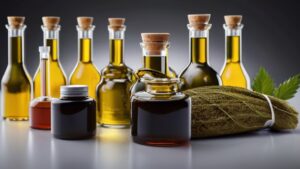Hemp Plastic
Hemp is the plant that has the potential to help us reinvent the future of plastic and other materials. It is a clean, ecological, sustainable and renewable alternative. And it can replace the use of polluting materials in the production of goods in many fields, such as construction, automobiles, fashion, design, sports, and many others.
But hemp is not a new resource that responds to a specific ecological trend. Hemp is a raw material that returns from the past to help us rethink the future. For millennia, it has been used for its nutritional properties and multiple health benefits, and it has served as a raw material for countless products such as food, textiles, and medicines.
Hemp is among the crops that creates more biodiversity in its surroundings. Its cultivation allows us to obtain at low cost three raw materials: the seeds, the fibre and the pulp. Fibre has always been the most used for its excellent qualities, as it is the most resistant, absorbent and durable fibre of vegetable origin.
Reinventing the future of hemp plastics
It is becoming increasingly easy to find products aimed at various sectors made from vegetable fibres, such as flax, coconut and, of course, hemp. The aim is to replace the polluting materials that have been produced for decades. As we have said, hemp can replace many of these materials, such as plastics, thus helping reduce pollution worldwide.
The use of hemp not only entails an ecological benefit. It also improves the quality and performance of the products containing it. For instance, hemp fibre has long been used, instead of fibreglass, to make surfboards as it makes them much lighter, more flexible and resistant, and gives them sensational grip and buoyancy.
Thus, with increasing frequency each year, innovations in hemp plastic technology come onto the market. Today, even some of the largest automobile companies such as BMW, Mercedes and Bugatti incorporate hemp plastics in their products. The latest Porsche model, for instance, the 718 Cayman GT4, incorporates hemp fibre panels manufactured by the Dutch company Hempflax.
In short, hemp bioplastic materials, offer significant advantages for the environment. Because they are not made from fossil fuels, they do not produce carbon dioxide when decomposed. In addition, most of them are biodegradable. Everything indicates that they could be a very important part of solving the climate crisis. Another win for Hemp that has a huge and positive sustainability plus for our world!







